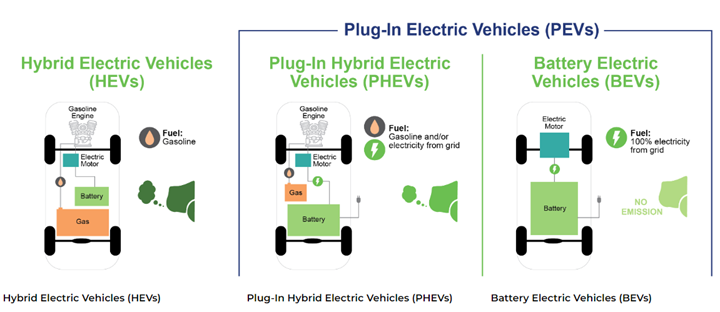EV Resource Links
EV Funding Assistance Programs
Electric Vehicle Rebates
Overview: DTE offers residential customers rebate opportunities for purchasing or leasing an electric vehicle and/or purchasing an EV charging station for your home. DTE also offers rebates toward the cost to install EV charging stations for commercial business customers. Eligibility requirements must be met to qualify for any of the rebate programs.
Who Qualifies? DTE Residential and Commercial Business Customers
Resource Link:
Residential Customer Information: https://www.dteenergy.com/us/en/residential/service-request/pev/electric-vehicle-rebate.html
Commercial Business Customer Information: https://www.dteenergy.com/us/en/business/service-request/pev/plug-in-electric-vehicles-pev.html
Charge Up Michigan Program
Overview: The Charge Up Michigan Program is an EV Charger Placement project that aims to build the infrastructure for DC fast charging stations in the state of Michigan to ensure feasibility of all long-distance trips for electric vehicle (EV) users, within the state, and also to neighboring states and Canada. To achieve this, the Department of Environment, Great Lakes, and Energy (EGLE) and partners (electric utilities and applicant) will provide funding for qualified DCFC EV charging equipment, site preparation, equipment installation, networking fees and signage.
Who Qualifies? Public or private organizations that can host publicly accessible charging stations, can fulfill program priorities, and are enrolled in a utility rebate program are eligible to apply for this grant.
Resource Link: https://www.michigan.gov/egle/about/organization/materials-management/energy/rfps-loans/charge-up-michigan-program
Clean School Bus Program
Overview: With funding from the Bipartisan Infrastructure Law, the EPA Clean School Bus Program provides $5 billion over five years (FY 2022-2026) to replace existing school buses with zero-emission and clean school buses.
Who Qualifies? Local or State Government entities, Tribal Organizations, Public Charter School Districts, Eligible Contractors, Nonprofit Transportation Associations
Resource Link: https://www.epa.gov/cleanschoolbus




